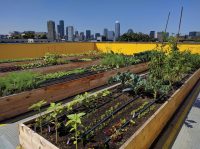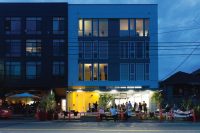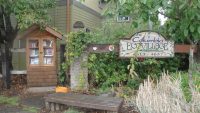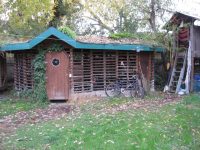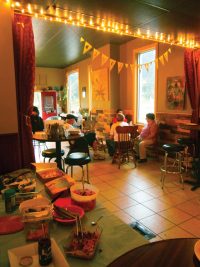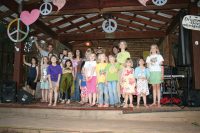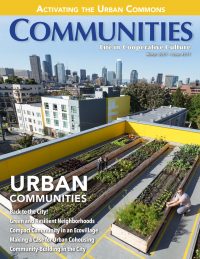Issue 177
Community-Building in the City
Posted on February 1, 2018 byIn its formative and early stages, Capitol Hill Urban Cohousing in Seattle encounters both challenges and successes.
Making a Case for Urban Cohousing
Posted on January 21, 2018 byUrban cohousing offers a unique alternative that still allows access to the amenities, conveniences, and vibrancy of city life.
Green and Resilient Neighborhoods: Portland, Oregon and Beyond
Posted on January 11, 2018 byColumbia Ecovillage, Cully Grove Garden Community, Kailash Ecovillage, River Road Neighborhood, and elsewhere embody diverse, promising approaches to re-greening our lives.
Compact Community at Maitreya EcoVillage in Eugene, Oregon
Posted on January 1, 2018 by3 Comments
Urban development needs sufficient density to support functional public transit, bicycling, and walking—while also staying beautiful, fun, green, and rich with community.
Enright Ridge Urban Ecovillage: A 13-Year-Old Retrofit Ecovillage in Cincinnati, Ohio
Posted on December 21, 2017 byWhile it involves inevitable struggles, this replicable model both forms community and provides an ecological framework for living in the city.
Honoring the Conversation: Turning a Neighborhood into a Community in Intown Atlanta
Posted on December 11, 2017 byFace-to-face conversation strengthens the sense of community among the diverse constituencies of a nonprofit Land Trust.
DC Community Evolution and Change: Perspectives from Lutheran Volunteer Corps
Posted on December 1, 2017 byWhile time has brought increased gentrification, a faith-based community’s fight for social justice in DC is far from over.
Back to the City!
Posted on November 26, 2017 byAs Compersia and Point A aim to demonstrate, a city can be the perfect place to start an egalitarian, income-sharing community.
Urban Communities, #177 Contents
Posted on November 22, 2017 by1 Comment
Our Winter 2017 issue, Urban Communities, takes readers on a journey from the US East Coast through middle America to the West Coast, then to Canada and overseas. The communities featured span an equally broad range—from communes to cohousing, from outward-focused to more inward-focused, from retrofit to custom-built, from ecovillages, intentional neighborhood projects, and service-oriented groups to broader efforts to expand and strengthen the urban commons. As our stories make clear, and despite popular preconceptions, in many ways no setting is better suited to intentional community than an urban one—and, even short of full intentional community, city-dwellers have many, ever-evolving options for creating more connection, mutual support, and sharing in their lives.

